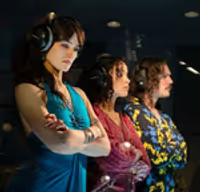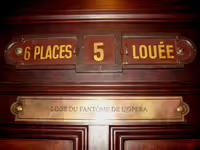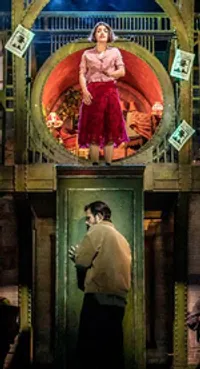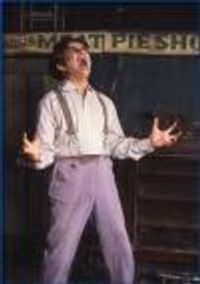Memory play (or musical) or shows with ghosts?
#1Memory play (or musical) or shows with ghosts?
Posted: 6/22/23 at 10:20am
I’m doing some research on memories plays (or musicals) or shows that use ghosts effectively. What are some worth looking into?
I’ll start…
A CHRISTMAS CAROL
THE SECRET GARDEN
FOLLIES
GHOST THE MUSICAL
berniesb!tch
Stand-by Joined: 5/23/21
#2Memory play (or musical) or shows with ghosts?
Posted: 6/22/23 at 10:29am
The Glass Menagerie is a memory play.
The Inheritance has a pretty big scene (maybe more than one it's been a while since I read it) involving ghosts.
#3Memory play (or musical) or shows with ghosts?
Posted: 6/22/23 at 10:32am
Blithe Spirit and its musical version, High Spirits
Macbeth
Richard III
Hamlet
Julius Caesar
Cymbeline
Angels in America
I Hate Hamlet
The Innocents
The Woman in Black
#4Memory play (or musical) or shows with ghosts?
Posted: 6/22/23 at 10:53am
Fun Home
Phantom of the Opera
Dancing at Lughnasa
#5Memory play (or musical) or shows with ghosts?
Posted: 6/22/23 at 11:08am
The Curious Incident Of The Dog In The Night-Time
The ghostly memory and flashbacks of his mother, whom he believes to be dead during the first act.
#6Memory play (or musical) or shows with ghosts?
Posted: 6/22/23 at 11:08am
The Piano Lesson
"Michael Riedel...The Perez Hilton of the New York Theatre scene"
- Craig Hepworth, What's On Stage
The Bittersweets
Chorus Member Joined: 1/14/23
#7Memory play (or musical) or shows with ghosts?
Posted: 6/22/23 at 11:33am
Some shows that come to mind are:
- Water By The Spoonful
- Ghost Quartet
- Assassins
- The Thin Place
- quite a few Paula Vogel plays but specifically Indecent
berniesb!tch
Stand-by Joined: 5/23/21
#8Memory play (or musical) or shows with ghosts?
Posted: 6/22/23 at 1:00pm
Now that I think about it, would Wicked could count as a memory play since most of the show besides the first and last scene are in the past?
#9Memory play (or musical) or shows with ghosts?
Posted: 6/22/23 at 6:15pm
This could be a very broad topic covering a lot of shows. If you're able to narrow it down at all, that might help yield useful examples for your purposes. For example: does any play involving a flashback scene containing character/s that are now (in the present-day scenes) dead, count? Does it only count if that flashback is used to illuminate the psychology of the character remembering (this would probably exclude Phantom of the Opera; sorry, Old Raoul)? Do literal ghosts (Ghost: The Musical), fake ghosts (the Phantom in Phantom of the Opera) and 'psychological' ghosts (Fun Home) all count? How would you say that your initial examples used ghosts effectively or ineffectively, to give more of an idea of what you're looking for? (I don't mean for this to come off as a rant; I'm just interested in understanding.)
All that said, here are a few examples that I find interesting, if they're any help:
Elisabeth - Set in the underworld. The narrator resurrects a bunch of dead characters and makes them play out the story of what they did while alive, according to his own biased perception of what occurred. (There's also a character who's the personification of Death.)
Rebecca - Sort of an almost-ghost story (see also: Jane Eyre). A woman marries a widower and becomes obsessed with his dead first wife, Rebecca, whom she never met but whose presence seemingly lingers everywhere. Her preoccupation is so strong that Rebecca might as well be present as a ghost (and maybe she is... or is she?). However, I'm not sure if the show itself tackles this particularly effectively; it's inherent (and effective) in the original Daphne du Maurier novel.
Next to Normal - I have mixed thoughts on this show, but I think the use of a teenage Gabe as the 'ghost' of who he might have grown up to become if he hadn't passed away as an infant, is interesting. Given that he's the delusion of another character, Diana, rather than a literal ghost, he's also a menacing presence at times, seemingly trying to actively sabotage Diana's mental health.
#10Memory play (or musical) or shows with ghosts?
Posted: 6/22/23 at 11:30pm
Both The Weir and Shining City by Conor McPherson.
Dollypop
Broadway Legend Joined: 5/15/03
#11Memory play (or musical) or shows with ghosts?
Posted: 6/23/23 at 12:30am
Our Town
Videos








